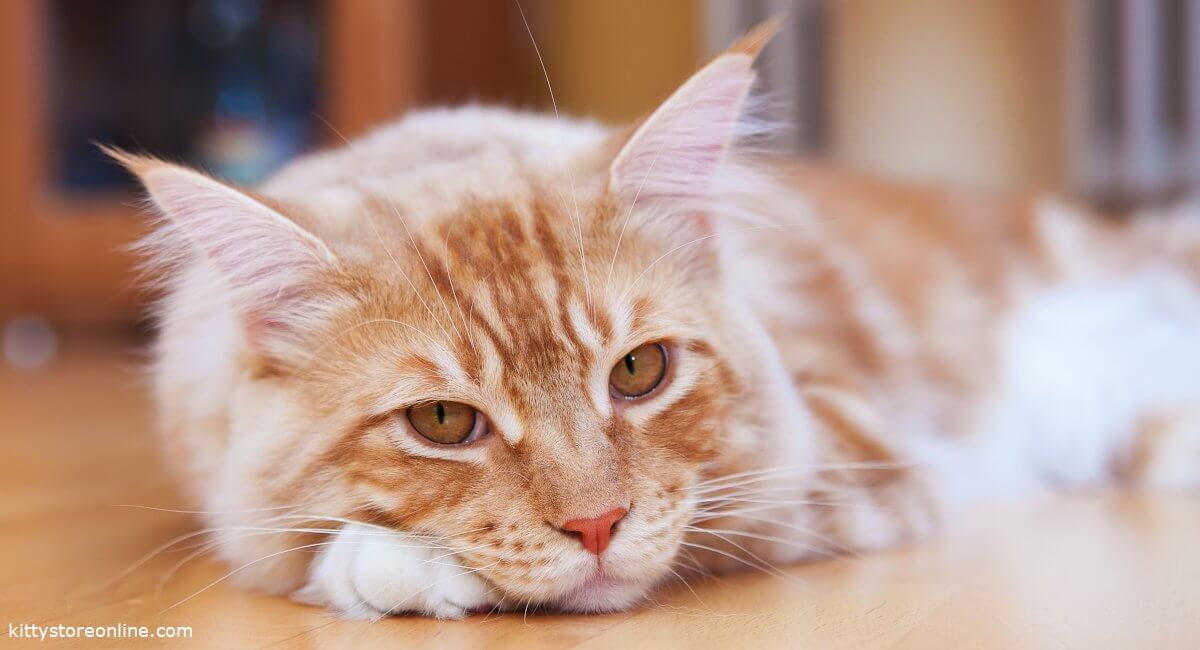Just like humans, cats can grieve. When a human leaves their environment, when an animal roommate dies, when there is a change of owner, or even after a move that affects the mental well-being of the cat, cats can grieve because they have lost an important social partner or safety and security. The mourning can last from 2 to 6 weeks in a cat. Very sensitive cats grieve for a full year before returning to daily life.
How do cats mourn?
At first, cats do not want to acknowledge the changed life situation. They look for the disappeared companion again and again in the whole environment. Subsequently, these behaviors were observed:
- meows more than usual
- Eats less or tons more food
- Listlessness
- Lack of interest in the environment/lack of interest in play
- aggressive behavior or inner withdrawal
- Personal hygiene neglect and uncleanliness
- Increased grooming until bald patches appear in the coat
- Sleep disorders
- Destructiveness
The cat’s immune system works at a reduced level during grief. Infections return again and again. Chronic diseases can worsen.
How long cats grieve varies from cat to cat. In the last phase of mourning, cats begin to adapt to the changed situation. They build new bonds and become more involved with the remaining social partners.
How can I help my grieving cat?
There is no blanket recipe for this. If the cat allows it, you can pet the cat to show love and understanding. However, cats should not be petted forcibly. It helps some cats if you leave the bedroom door open at night. Sleeping sounds give cats a familiar feeling. Mix catnip, brewer’s yeast or fish oil into the cat food to help the cat relax. Various preparations such as Bach flowers and the like help the cat relax. If the cat lets itself be stroked and eats it against it however not, you can place as animation with stroking a fragrant treat nearby. To help the cat out of its sadness, you can increase the petting sessions, try grooming with a brush or offer special treats. Physical closeness and cheerfulness best helps cats and humans get over this mourning period.
Picking up a cat
If you take in a cat from the shelter or a cat from another owner, it can also grieve. It does not understand why it is suddenly torn out of its familiar surroundings and everything is new and smells strange. It is therefore important that you take familiar items with you to the cat’s new home. This includes the sleeping basket, the scratching post and the cat toys. Worn clothing from the previous owner can also help with settling in. Use the same cat litter and cat food during the initial period to help the cat acclimate.
When an animal companion has passed away
Do not lock the cat away, but let the cat sniff the deceased animal extensively. This way the cat can realize the death and understand what happened. If you do not give the cat this opportunity, it will keep going in search of the dead animal. During the time for the cat, avoid additional stress such as a move or renovation of the apartment. Keep familiar rituals and feeding times. If the cat is still not eating after three days, consult a veterinarian. Warm the cat food slightly. Cats prefer to eat their food this way. Schedule more time for the cat to compensate for the loss of the animal partner. The cat needs more talk and more activity during this time of grief. Don’t get a new cat too early to spare the cat additional stress. During the period of mourning, the cat will not welcome a new roommate amicably. At the earliest after a period of three months you should think about buying a new cat, because pure apartment cats should not be kept alone.
So it can also go
With two cats it can be that one cat really blossoms after the death of the other cat and shows more joy of life. This happens especially with insecure and introverted cats, which were the inferior part in the cohabitation of two cats. Now the remaining cat finally has his human to himself and can go to the more attractive places that were reserved for the extroverted cat. In this case, you do not necessarily have to buy a second cat in addition. If you still do not want to keep the cat alone, you should choose a second cat with an unobtrusive and calm character as a new partner.
